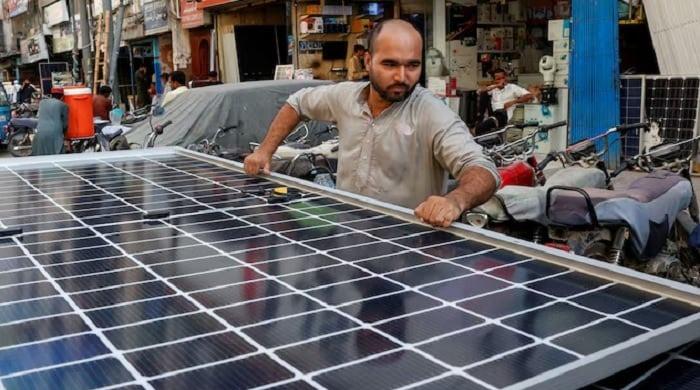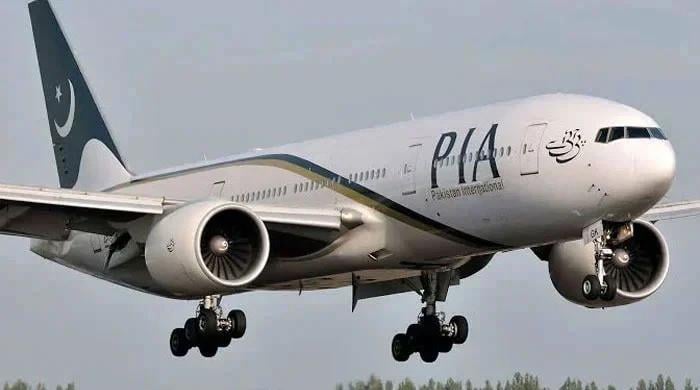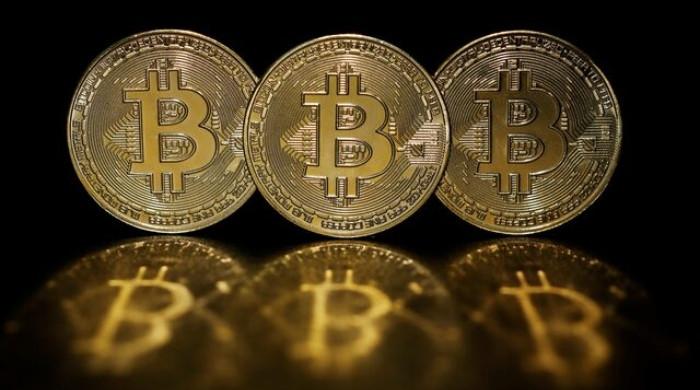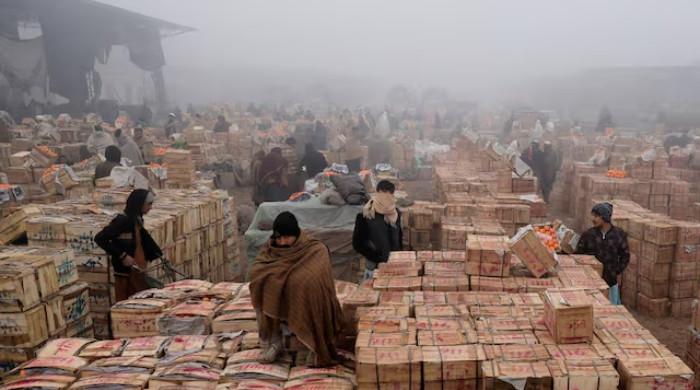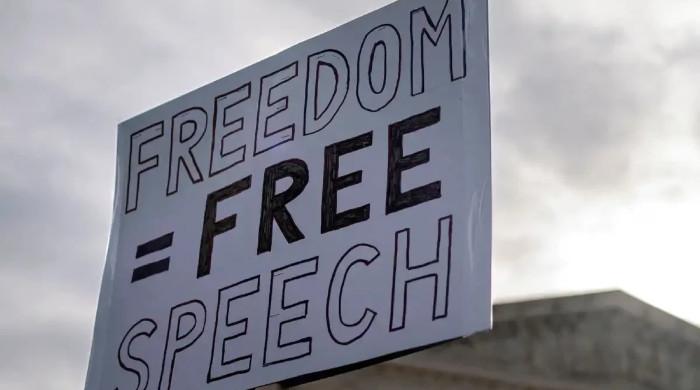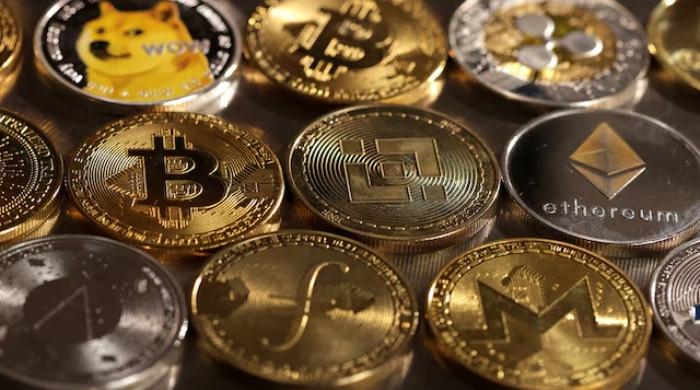A message from the by-poll
Mohammad Yaqoob Sheikh nominated candidate of political party Milli Muslim League , waves to his supporters during an election campaign for the National Assembly NA-120 constituency in Lahore,...
September 21, 2017
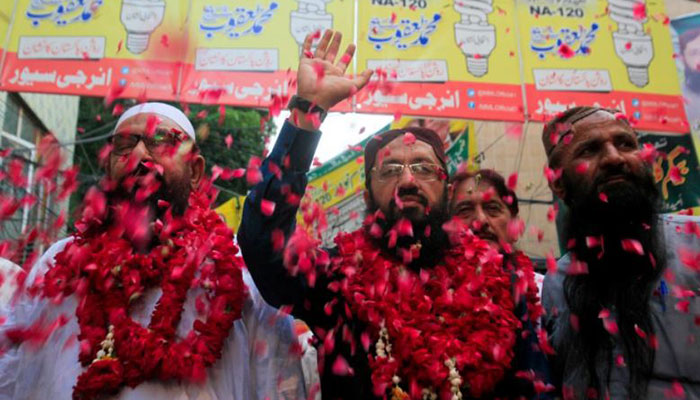
The by-poll in Lahore to fill the seat vacated by Nawaz Sharif was important in many different ways. Of course, the multiple posters of Kulsoom Nawaz and her arch-rival Dr Yasmin Rashid dominated the campaigning process. There was also the occasional picture of PPP leader Faisal Mir pinned up on poles – perhaps to simply complete a formality. As we all saw, the by-poll demonstrated the dramatic loss of the PPP’s power as a major party in Punjab, with Mir eventually collecting just over 1,000 votes.
What was significant – and possibly alarming – was that 11 percent of votes were picked up by candidates from two extremist religious groups. Sheikh Azhar Hussain Rizvi of the Labbaik Ya Rasulallah collected just over 7,000 votes. The group is a coalition of several small religious parties that campaigned by holding posters of Mumtaz Qadri, who was convicted and executed for the murder of former Punjab governor Salmaan Taseer in 2011.
While six percent of votes went to the group, five percent were collected by Muhammad Yaqoob Sheikh. While he was contesting as an independent candidate, Sheikh essentially represented the Milli Muslim League (MML), which is currently seeking registration. Sheikh claimed nearly 6,000 votes while the votes of the more traditional religious parties, such as the JI, failed to reach a respectable figure. The PPP also remained in the fifth position, barely making a mark in the vote bank.
The appearance of Qadri as part of the poll campaign in a major Lahore seat suggests how great the threat of extremism is. In many circles, he has already been given the status of a national hero despite being executed for the former Punjab governor’s murder. Images on social media show small children being taken to his grave to salute Qadri.
Of course, the JuD or the MML – the party that is currently in evolution – are not responsible for this alone. But when the ECP and others who wield power permit banned outfits that hold at least some extremist ideas to participate in polls, mixed messages are sent out to the people. On the one hand, we have been told that under the National Action Plan, which was devised in January 2015, even the teaching of hatred at mosques and madressahs would be penalised and maximum efforts would be made to create tolerance in society.
While there is no evidence that these small religious groups will have a major impact on the 2018 elections, there are precedents of organisations that have been banned under the country’s laws participating in polls through different mean. The Sipah-e-Sahaba Pakistan – an organisation that played a key role in giving rise to sectarian hatred through its fiercely anti-Shia message – has taken part in polls even after the ban was placed on it. The group has been an ally of the PML-N in Punjab and has in a few constituencies openly declared support for its candidates, even when it has not fielded a contender of its own. In some parts of the country, such patronage for a particular party can have an extremely powerful impact.
Similar dangerous liaisons between banned outfits and mainstream political parties have been brokered in other parts of the country, with most major parties being guilty of this in one way or the other. This raises questions about their commitment to tackling extremism and all the violence that it has brought to our nation.
It is also difficult to assess why the higher authorities do not make an attempt to push these organisations out of the mainstream. Connivance between some of these organisations and the Pakistani establishment has been referred to multiple times over the past few weeks by the US, the Brits and other nations. If there is no connectivity, why don’t we make this more obvious by compelling major parties to adhere to the tenets of NAP that they all sat together and signed in the aftermath of the massacre at a school in Peshawar?
Allowing outfits that may have terrorist leanings to enter mainstream politics is an extremely dangerous trend. It is precisely for this reason that suggestions from certain quarters that even sections of the TTP should be mainstreamed have been fiercely challenged on multiple occasions. The proposal continues to be made. We can only hope that we do not see a day when a TTP candidate, who has participated in the mass murder of people in various parts of his own country, is permitted to contest a poll.
It is perhaps encouraging that Sheikh collected only a small number of votes compared to the two strong women who battled it out for the seat. Nevertheless, 4,000 votes is not a miniscule number. It is true that many of these votes were most likely polled on the basis of the excellent social work carried out by the JuD in many parts of the country, including the neglected outskirts of NA-120. But these efforts should not disguise the fact that the group also sends out dangerous messages, especially in relation to jihad, enemy states in the region and other issues of significance within the country. We cannot neglect the fact that Hafiz Muhammad Saeed has been accused of various crimes – even if these charges have yet to be proved in court.
From this arises another important matter. If the JuD and other groups can organise themselves to carry out efforts that benefit the people by providing food services, sanitation-building drives, schools and other facilities, why can’t our political parties, with their vast resources, manage the same? It is, after all, shameful that in NA-120 – the home constituency of a former prime minister – residents openly say that clean drinking water is not available to them.
The recent focus on this constituency – which includes some of the most congested areas of Lahore – also revealed that adequate streets, sewerage facilities and other basic amenities were not available to people. It appears that the PML-N had paid little heed to the constituency between 2013 and the recent by-poll.
The same would also be true of other constituencies – even those won by key leaders from all parties – everywhere in the country. Larkana, the home of the Bhuttos, is one of the most rundown towns in Sindh, with poverty visible everywhere. In Peshawar – from where the PTI draws its strength – observers have noticed that the condition of the people has failed to improve in terms of civic amenities or other facilities despite the many claims that have been made in this regard.
Such lapses, of course, promote extremism. They open up space for candidates who hold up Mumtaz Qadri or others like him as heroes to occupy the political space. If we are to succeed in tackling extremism and the horrors that it brings, the political parties will need to play a genuine role in putting aside the self-interest that they will need to abandon any alliances with groups that put forward messages of hatred or believe that killing an individual can be justified.
Multiple alliances of this nature have been formed in the past. When we consider this, documents such as NAP lose all meaning. They merely seek to fool people and the world into believing that our leaders are committed to tackling violence. If they genuinely intend to send out this message and prevent incidents such as the one that led to the beating of a 17-year-old Christian boy to death in his high school in Vehari, we will need to go beyond cosmetic measures.
All political parties must lead the way during the 2018 elections and show that protecting their own interest is secondary to doing deals that, on the whole, hurt their country.
Email: [email protected]
The writer is a freelance columnist and former newspaper editor.
This article originally appeared in The News




